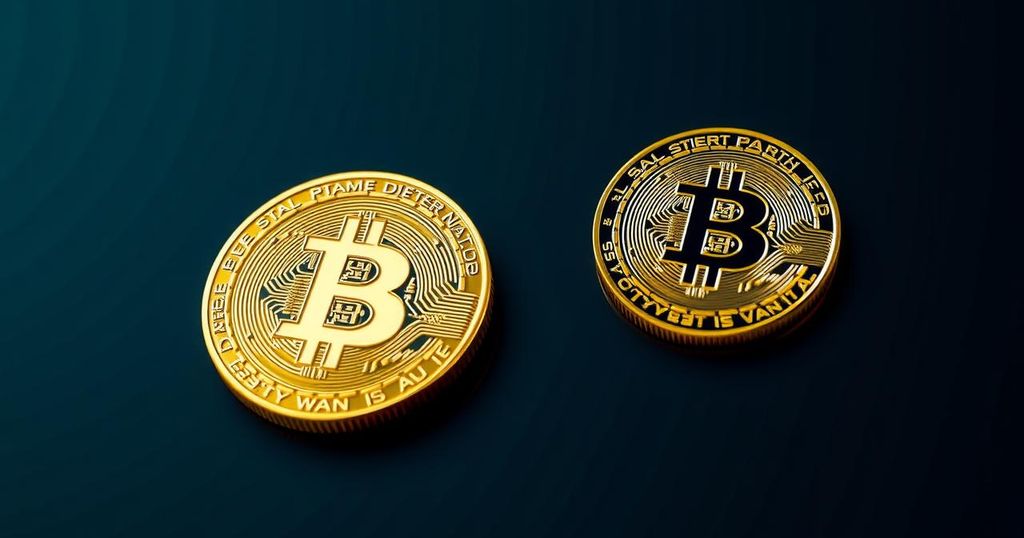El Salvador and Bhutan are pioneering Bitcoin reserve strategies, amassing significant holdings and demonstrating how smaller nations can leverage cryptocurrency for economic advancement. El Salvador has acquired nearly 6,000 BTC through a daily purchase strategy, while Bhutan has mined over 12,000 BTC, illustrating the impact of strong leadership and innovative resource management in the evolving financial landscape.
In recent years, El Salvador and Bhutan have emerged as significant players in the global Bitcoin landscape, using innovative strategies to amass substantial Bitcoin reserves. El Salvador has adopted a daily Bitcoin purchase strategy since late 2022, accumulating nearly 6,000 BTC, while Bhutan has leveraged its natural resources to mine over 12,000 BTC, valued at approximately $1.1 billion. The leaders of both nations have demonstrated a strong commitment to Bitcoin adoption, which other countries may soon emulate as they recognize the potential benefits of integrating cryptocurrency into their national strategies.
El Salvador took a bold step in 2021 under President Nayib Bukele, who faced skepticism after designating Bitcoin as legal tender. However, his proactive approach, including the decision to purchase one Bitcoin daily, has resulted in significant gains. As Bitcoin prices soared to new heights, El Salvador’s treasury benefited substantially, enhancing its relationship with the International Monetary Fund (IMF) amidst prior doubts regarding its cryptocurrency strategy.
In contrast, Bhutan has quietly built a substantial Bitcoin treasury through mining operations. The nation’s strategic approach allows it to effectively utilize surplus energy for Bitcoin mining, positioning Bhutan to reap significant financial dividends. Leaders in Bhutan have adopted a tactful approach, emphasizing resource efficiency and generating revenue from their Bitcoin reserves.
The leadership qualities of both nations play a crucial role in their success. While El Salvador has taken a transparent approach in its strategy, Bhutan’s silent growth demonstrates a methodical commitment to resource management. Observers note that a shift in global adoption could lead to greater acceptance of Bitcoin, particularly if larger economies embrace similar strategies.
As developing nations with limited economic growth potential, El Salvador and Bhutan serve as models for others aspiring to leverage cryptocurrency. With effective Bitcoin investment strategies, these nations are paving the way for economic advancement, particularly for developers with access to cost-effective energy resources. The ongoing evolution of Bitcoin adoption signifies a transformative phase in finance, as WeFi, a pioneering non-custodial bank, seeks to facilitate this transition for developing countries.
El Salvador and Bhutan, two relatively small and less economically powerful nations, are garnering attention for their proactive approaches towards Bitcoin adoption. While El Salvador adopted Bitcoin as legal tender amidst global skepticism, Bhutan has chosen a more discreet route by harnessing its energy resources for Bitcoin mining. Both nations are now reaping the rewards of their respective strategies, with notable impacts on their national economies and potential implications for future Bitcoin policies worldwide. This backdrop highlights the importance of leadership and strategic resource management in navigating the rapidly evolving digital currency landscape.
In conclusion, El Salvador and Bhutan’s forays into Bitcoin signify a significant development within the cryptocurrency sphere, demonstrating how smaller nations can shape their economic futures through innovative strategies. Their contrasting approaches—El Salvador’s bold legal adoption and Bhutan’s methodical mining practices—both reflect strong leadership and a commitment to harness the potential of cryptocurrency. As more nations consider similar paths, the financial landscape may witness a broader acceptance of Bitcoin, paving the way for new economic opportunities and further development, particularly in developing regions with advantageous resources.
Original Source: www.ibtimes.com






